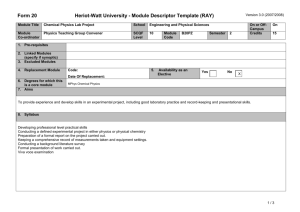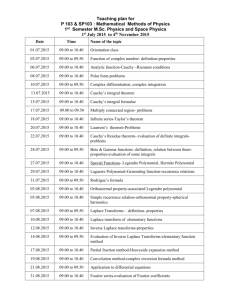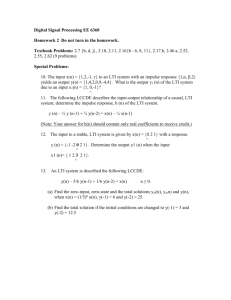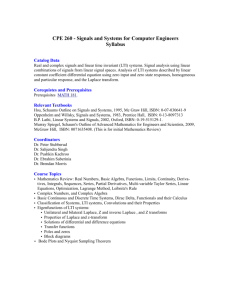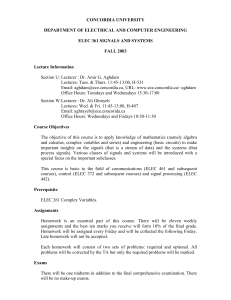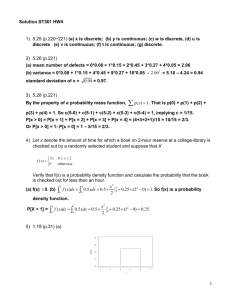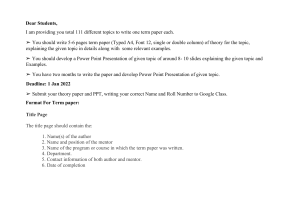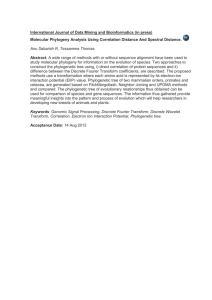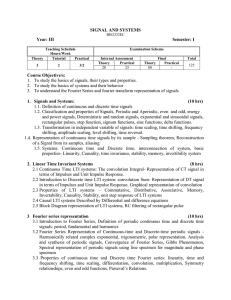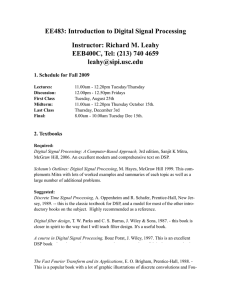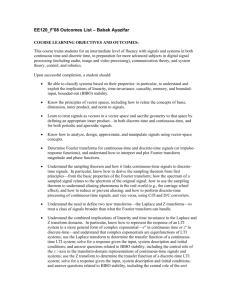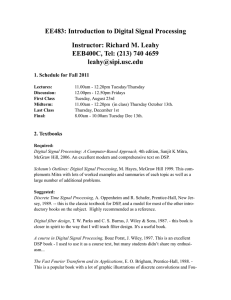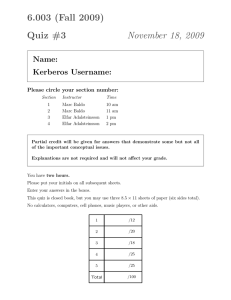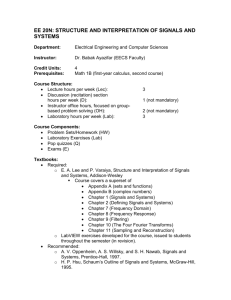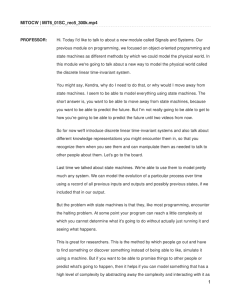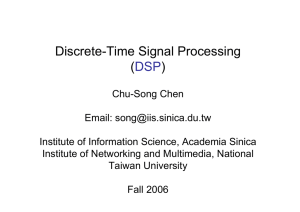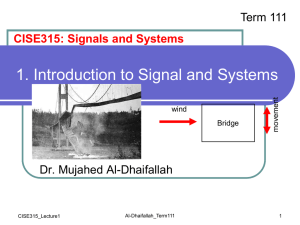Heriot-Watt University
advertisement
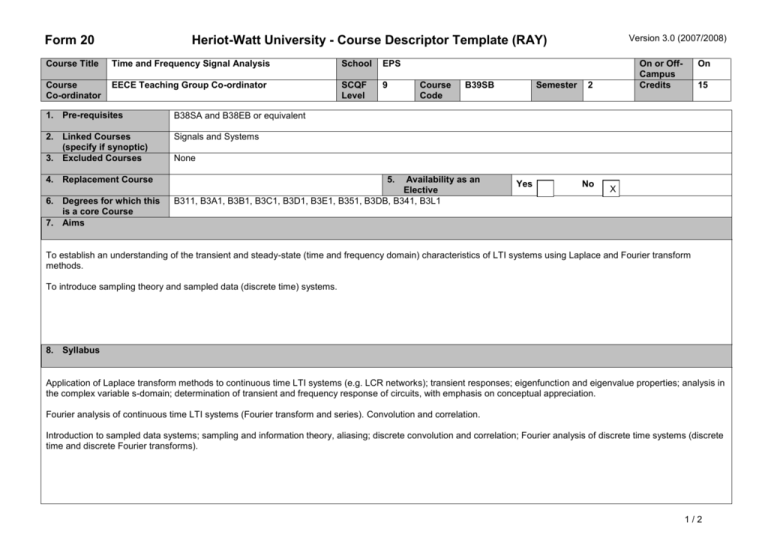
Form 20 Version 3.0 (2007/2008) Heriot-Watt University - Course Descriptor Template (RAY) Course Title Time and Frequency Signal Analysis School EPS Course Co-ordinator EECE Teaching Group Co-ordinator SCQF Level 9 1. Pre-requisites B38SA and B38EB or equivalent 2. Linked Courses (specify if synoptic) 3. Excluded Courses Signals and Systems 4. Replacement Course 6. Degrees for which this is a core Course 7. Aims Course Code B39SB Semester On or OffCampus Credits 2 On 15 None 5. Availability as an Elective B311, B3A1, B3B1, B3C1, B3D1, B3E1, B351, B3DB, B341, B3L1 Yes No X To establish an understanding of the transient and steady-state (time and frequency domain) characteristics of LTI systems using Laplace and Fourier transform methods. To introduce sampling theory and sampled data (discrete time) systems. 8. Syllabus Application of Laplace transform methods to continuous time LTI systems (e.g. LCR networks); transient responses; eigenfunction and eigenvalue properties; analysis in the complex variable s-domain; determination of transient and frequency response of circuits, with emphasis on conceptual appreciation. Fourier analysis of continuous time LTI systems (Fourier transform and series). Convolution and correlation. Introduction to sampled data systems; sampling and information theory, aliasing; discrete convolution and correlation; Fourier analysis of discrete time systems (discrete time and discrete Fourier transforms). 1/2 Form 20 Version 3.0 (2007/2008) Heriot-Watt University - Course Descriptor Template (RAY) Course Title Time and Frequency Signal Analysis School EPS Course Co-ordinator EECE Teaching Group Co-ordinator SCQF Level 9 Course Code B39SB Semester 2 On or OffCampus Credits On 15 9. Learning Outcomes (HWU Core Skills: Employability and Professional Career Readiness) Subject Mastery Understanding, Knowledge and Cognitive Skills Personal Abilities A critical understanding of the time and frequency domain characteristics of continuous time LTI systems. Knowledge of the applications of Laplace and Fourier transforms in LTI systems analysis. An understanding of sampling theory and basic discrete time system properties. Industrial, Commercial & Professional Practice Scholarship, Enquiry and Research (Research-Informed Learning) Autonomy, Accountability & Working with Others Communication, Numeracy & ICT Use of DSP development environment. Ability to direct & take responsibility for own work. Undertake critical evaluations of a wide range of experimental work 10. Assessment Methods Method 11. Re-assessment Methods Duration of Exam Weighting (%) Synoptic modules? Method (if applicable) Coursework Examination 2hrs Duration of Exam (if applicable) 30 70 Examination 2 hrs 12. Date and Version Date of Proposal 28 February 2011 Date of Approval by School Committee Date of Implementation Version Number 1.1 2/2
